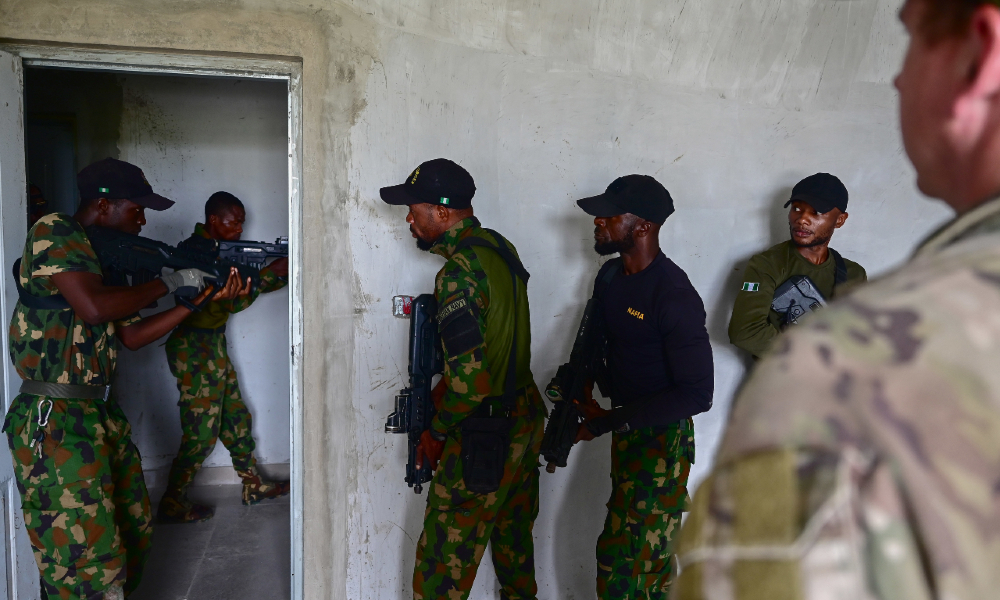Today's Headlines and Commentary
The Washington Post is covering the continuing story on Adel al-Gazzar, the former Guantanamo detainee who returned to Egypt and was promptly arrested.
The State Department has added a second former Guantanamo detainee--and seventh AQAP operative--to its list of government-sanctioned terrorists.
Published by The Lawfare Institute
in Cooperation With

The Washington Post is covering the continuing story on Adel al-Gazzar, the former Guantanamo detainee who returned to Egypt and was promptly arrested.
The State Department has added a second former Guantanamo detainee--and seventh AQAP operative--to its list of government-sanctioned terrorists. The Miami Herald has the story.
In the continuing coverage of the recent appointment of al-Zawahiri as bin Laden's successor, the Washington Post is suggesting that his promotion is a blow to the jihadist movement. The New York Times also has analysis here.
Attorney General Eric Holder recently spoke in Washington to the American Constitution Society in favor of trying terrorism suspects in civilian courts. The Wall Street Journal has coverage of his speech here, and Politico's Josh Gerstein covers the story here.
The New York Times' Charlie Savage reports on Senator Mitch McConnell's argument with the Justice Department over the two Iraqis being held in Kentucky. Lawfare readers may recall that he is arguing for their transfer to Guantanamo.
In the realm of cybersecurity, the Washington Post reports that the NSA is joining forces with Internet service providers to build tools in an effort to thwart cyberattacks focused on the defense industry.
Jack and Bobby have been prolific (see here, here, here, here, and here) in discussing the White House's defense of continuing operations in Libya and the War Powers Act the last few days. The New York Times editorializes on this topic, saying
No matter how one sees this mission, the War Powers Act is an essential balance to the White House’s — any White House’s — power to wage war. Carving out an exception for drones or air strikes would be a dangerous precedent, especially in an era when so much fighting can be done from the air and by remote control. We are deeply skeptical of the motivations of at least some of the politicians suddenly championing the War Powers Act, beginning with House Speaker John Boehner.Senator Dick Durbin unveiled a resolution to authorize the use of force in Libya, and would comply with the War Powers Act and would carry the force of law (unlike the Kerry/McCain resolution that is circulating), according to Politico. Speaker Boehner, meanwhile, is threatening to eliminate funding for U.S. operations in Libya if the White House Office of Legal Counsel doesn't agree with the White House's justification. The stench from a story we shared yesterday has wafted over to the Miami Herald's desk. For more news and analysis links, see Today's Terrorism News over at the CenterLine.
Raffaela Wakeman is a Senior Director at In-Q-Tel. She started her career at the Brookings Institution, where she spent five years conducting research on national security, election reform, and Congress. During this time she was also the Associate Editor of Lawfare. From there, Raffaela practiced law at the U.S. Department of Defense for four years, advising her clients on privacy and surveillance law, cybersecurity, and foreign liaison relationships. She departed DoD in 2019 to join the Majority Staff of the House Permanent Select Committee on Intelligence, where she oversaw the Intelligence Community’s science and technology portfolios, cybersecurity, and surveillance activities. She left HPSCI in May 2021 to join IQT.
Raffaela received her BS and MS in Political Science from the Massachusetts Institute of Technology in 2009 and her law degree from Georgetown University Law Center in 2015, where she was recognized for her commitment to public service with the Joyce Chiang Memorial Award. While at the Department of Defense, she was the inaugural recipient of the Office of the Director of National Intelligence’s General Counsel Award for exhibiting the highest standards of leadership, professional conduct, and integrity.





